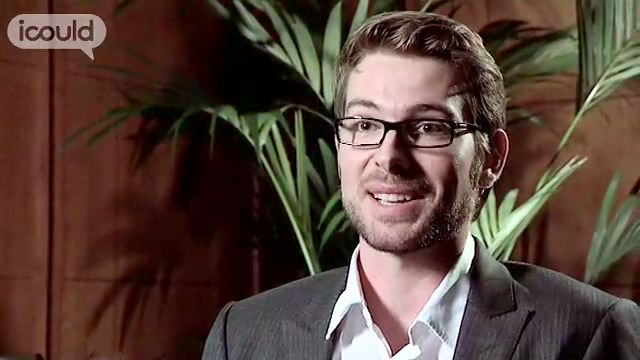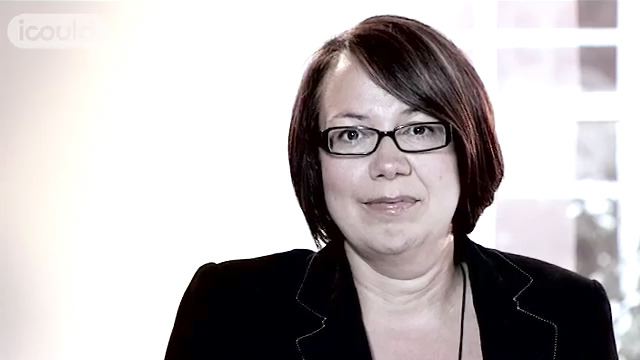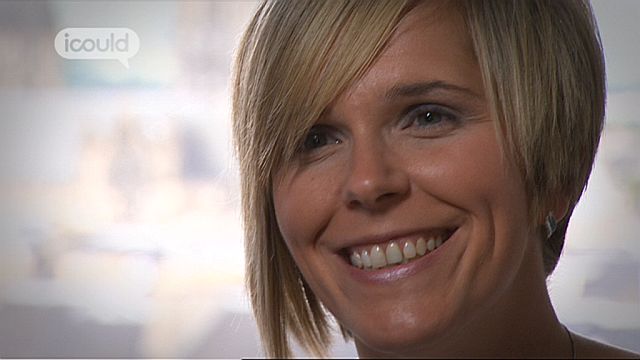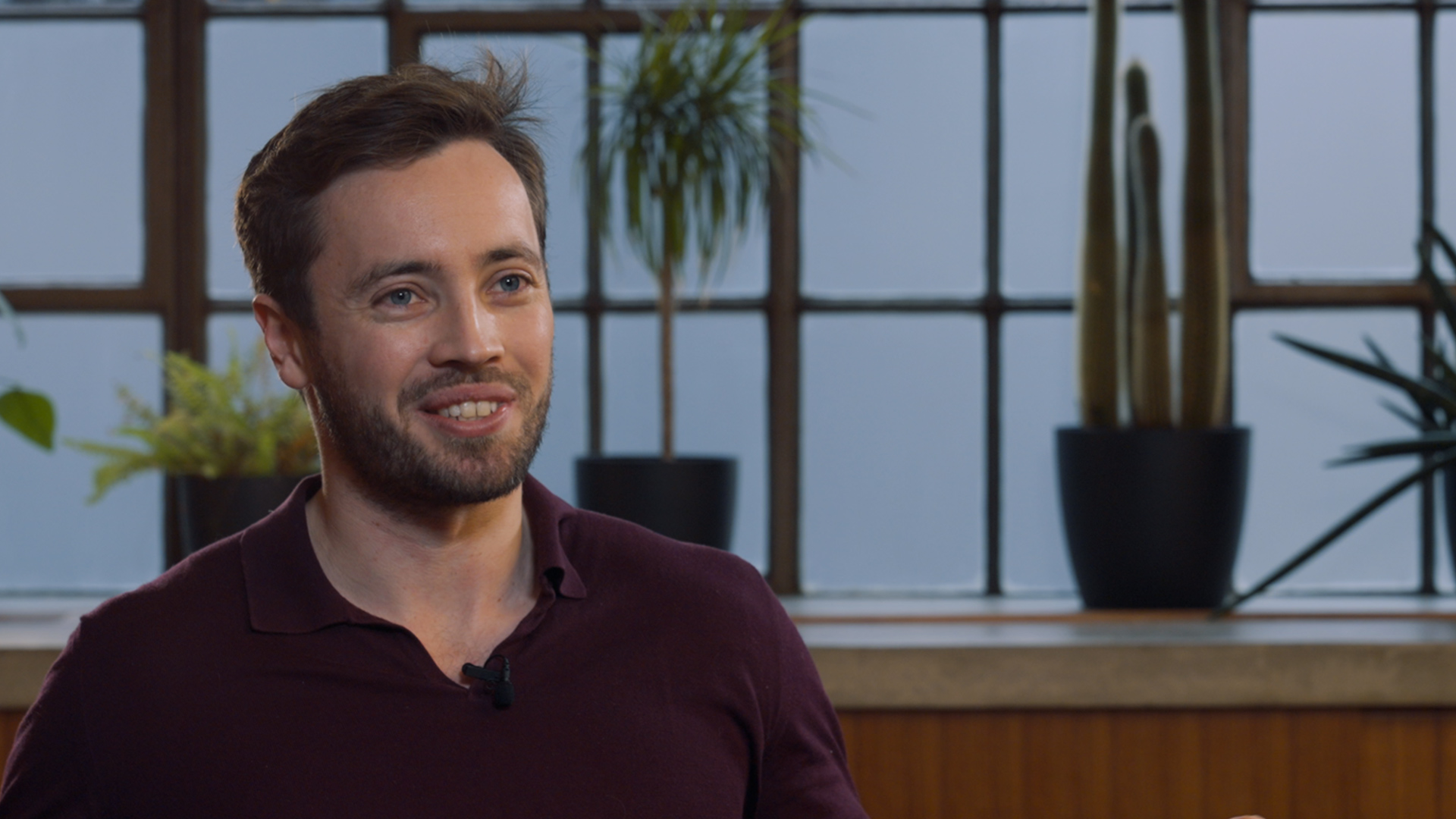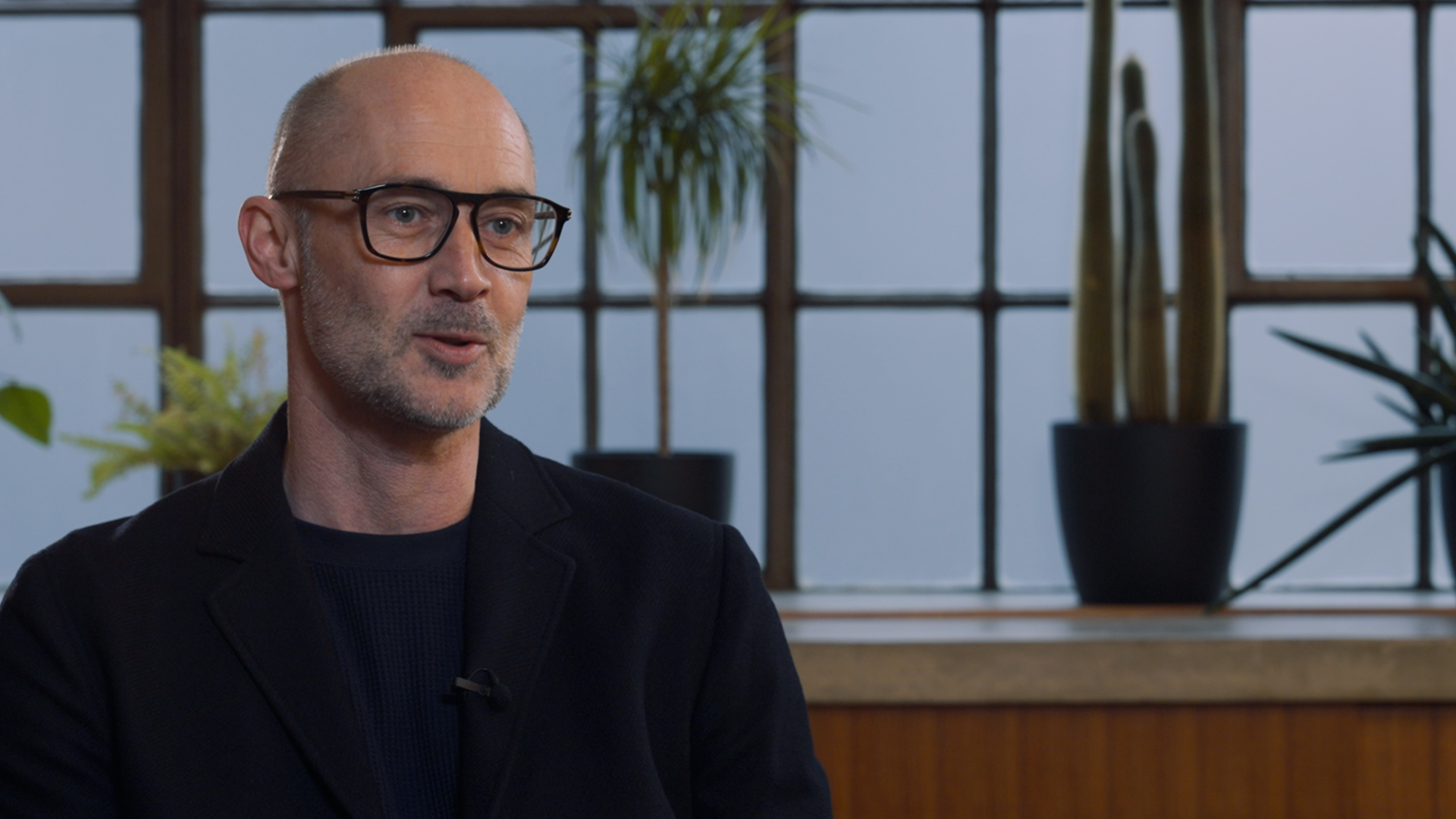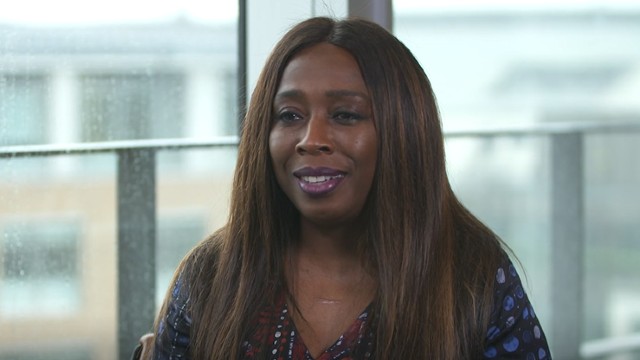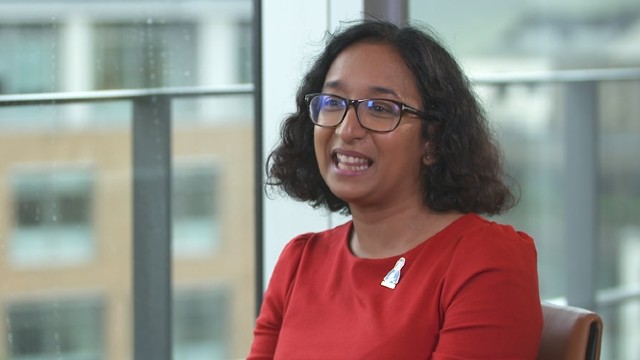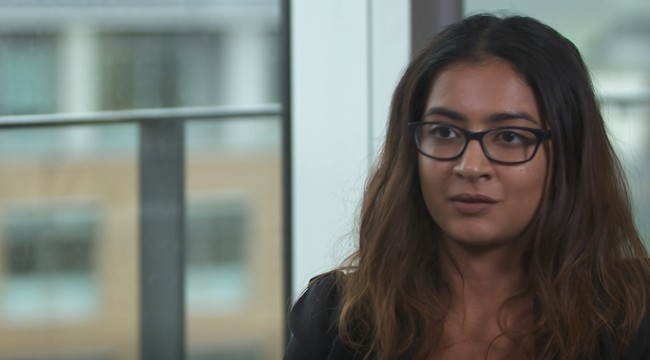Strategic Change Consultant
Standard Life
Kirsten L
My name’s Kirsten L, I work for Standard Life as a Strategic Change Consultant. Standard Life are a pension’s investment company. I initially worked in the tourism industry after leaving university, and that was my, kind of, ambition and joined Standard Life on a graduate scheme nine years ago. There was a very planned route for you, so you’re on full placements over two years, which I’d actually completed three over two years, doing slightly longer placements and I knew that I wanted to work in some sort of team management role and move up through that direction.
When I left school I went straight to university and I studied Hospitality and Tourism Management, and that was what I always wanted to do, was work in the tourism industry, I’d known that from a very, very young age. When I left university I joined BMI British Midland at Edinburgh airport as ground staff, done that for a few years until I realised shifts were quite hard work and getting up at five in the morning when your friends were coming home from a night club wasn’t really ideal. I left to go overseas to work for Cosmos holidays as an over seas representative and then done that for one year and then worked for Cosmos as an operations assistant and after that I moved back home. At the time though it was quite frightening, not knowing what I was going to do next. But making that decision to actually stay at home and find a job, for me, was a lot of soul searching. Working overseas was by far in a way the best two years of my life but coming back home and getting settled into a good career was probably a good move at the time that I done it. So I don’t have regrets as such, I look back and think ‘ooh it would be lovely to still be living in the sunshine’, but no regrets.
I’d seen an advert for a degree in our local newspaper when I was in my first year at school and it was for hospitality and tourism management and I’d cut it out, and I actually still have it, I cut it out and handed it to Mum and Dad and said I’m doing that. And I’d always wanted to work in travel from an even younger age, but I said I’m doing that degree and I done it.
I really enjoyed school and you kind of laugh when you look back and they say the best days of you life and actually yes it was. So I was out with some girls at the weekend that I hadn’t seen for eighteen years from school and one of them said that, that she actually said to me that you were very studious, you did work really, really hard, but I felt I had to work hard to achieve what I wanted to do. So I knew I was aiming for something, and I had to work hard to get there, but I enjoyed it and I had good relationships with teachers. I do remember at one point I chose craft and design which I don’t have a technical or an artistic bone in my body and quit after about three weeks and thought the teachers were going to give me a really hard time and they didn’t, they were like, no you’ve probably done the right thing actually, you weren’t very good anyway! And tended to focus more on languages and geography as well, so I got a lot of encouragement I think because I was quite focused as well. You know, you stress about exam results and you think if something comes through, you know, you don’t get the result that you want it’s the end of the world, and actually it’s not, there’s lots of different routes. I mean, I was probably quite lucky, I got the grades that I needed to get into university, but you know, looking around me now and knowing what other opportunities are available, it probably wasn’t as big a stress as I thought it was at the time.
My Mum was a bank manager and she took early retirement a few years ago and my Dad was a bus driver, he retired through ill-health a few years ago. But they both, neither of them, you know, they were straight from school as well into their jobs. I’m very much routing all the way, got a lot of support from Mum and Dad and yet their biggest support for me was just always try your best. I was under no pressure to do anything, I just had to try my best.
I don’t think anything prepares you for the transition from school to university, it’s a completely different world, really weird, really weird, like what am I doing, am I going to fit in here, this is so different. Very much your own responsibility for your own time, but I enjoyed it, I really stuck at it and enjoyed it, I really enjoyed my degree, probably didn’t live my university life to the full, which was probably one of my only regrets, that I lived at home and commuted to university everyday. But when I first finished university, it was a bit of a, you know, I’d always wanted to do this degree, and all of a sudden I’ve graduated and I graduated with a first, which was a big shock as well, it was a case of what do I do now. I’ve done, I’ve ticked that box, what next?
Do what you enjoy doing, don’t do what you think is the right thing to do. So if someone says to get a business degree because it’s the right thing to do, it doesn’t matter what you have, because I think, your qualifications are representative of your ability to apply yourself as a person as opposed to your knowledge in a specific area. I very much feel that because I’ve got a tourism management degree and I work in financial services and I’m currently installing a computer system, none of it matches, but it’s proof of how I can apply myself.
Kirsten initially worked in the tourism industry both in the UK and abroad initially but then joined Standard Life on their Graduate Programme. Working overseas was great fun but she felt that it was a good move to go home and start to develop her career. She worked at hard at school but new she wanted to get somewhere in life and realised that working hard would help her get where she wanted to be in the future.
More information about Functional managers and directors n.e.c.
The UK average salary is £29,813
There are 37.5 hours in the average working week
The UK workforce is 47% female and 53% male
Future employment
- Helps to formulate and implement local government policy and ensures legal and statutory provisions are observed;
- Organises local authority office work and resources, negotiates contracted out services;
- Plans, organises, coordinates and directs the resources of a special interest organisation;
- Formulates and directs the implementation of an organisation’s policies;
- Represents union, association or charity in consultation and negotiation with government, employees and other bodies;
- Stimulates public interest by providing publicity, giving lectures and interviews and organising appeals;
- Directs or undertakes the preparation, publication and dissemination of reports and other information pertaining to the organisation.
